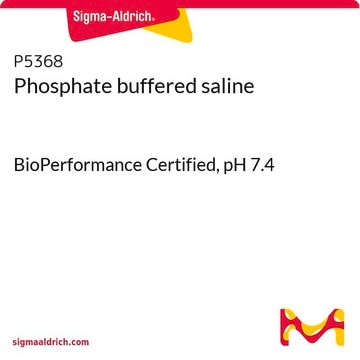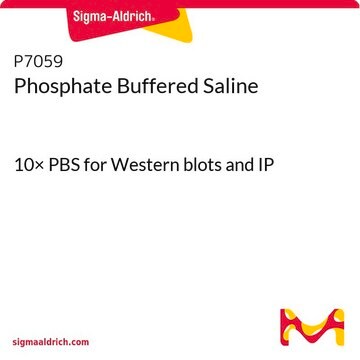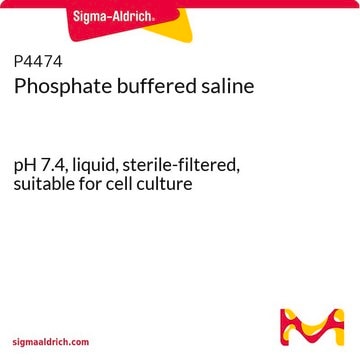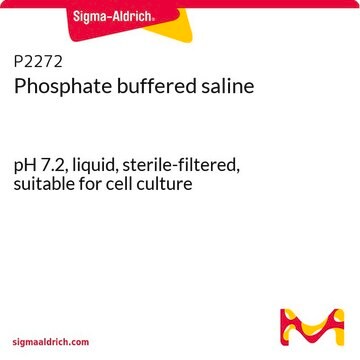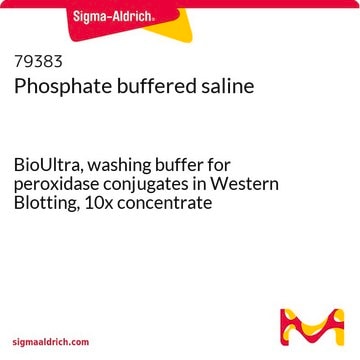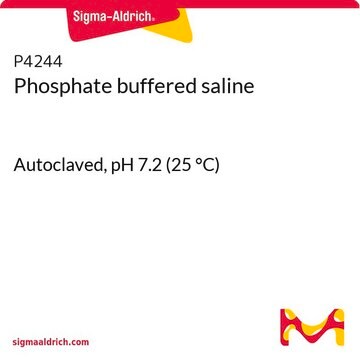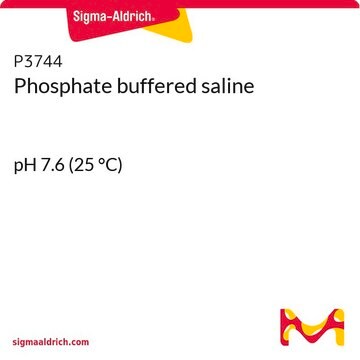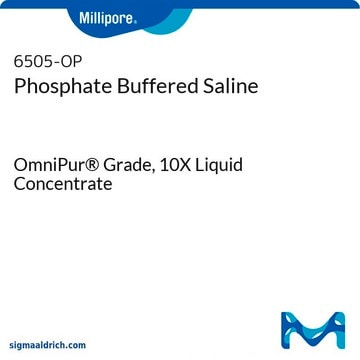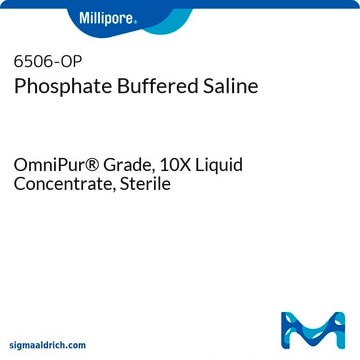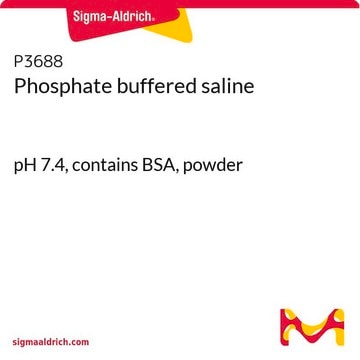P5493
Phosphate buffered saline
10X, solution, pH 7.2-7.6 (25 °C), BioPerformance Certified, for molecular biology
Synonym(s):
PBS
About This Item
Recommended Products
Product Name
Phosphate buffered saline, 10× concentrate, BioPerformance Certified, suitable for cell culture
grade
BioPerformance Certified
for molecular biology
Quality Level
100
200
sterility
0.2 μm filtered
form
solution
storage condition
(Tightly closed)
technique(s)
cell culture | mammalian: suitable
immunocytochemistry: suitable
immunofluorescence: suitable
impurities
Bioburden, tested
endotoxin, tested
≤5 ppm heavy metals (as Pb)
color
colorless
pH
7.2-7.6 (25 °C)
Looking for similar products? Visit Product Comparison Guide
Application
- as a cell wash solution in human dental pulp stem cells (DPSCs)[1]
- for perfusion studies in dissected brain samples[2]
- as wash solution for neurons culture cells sample preparation for immunofluorescence and immunocytochemical labelling[3]
- as wash solution for ovary and sperm during in vitro culture and fertilization[4]
Packaging
Other Notes
Storage Class Code
12 - Non Combustible Liquids
WGK
WGK 1
Flash Point(F)
Not applicable
Flash Point(C)
Not applicable
Choose from one of the most recent versions:
Certificates of Analysis (COA)
Don't see the Right Version?
If you require a particular version, you can look up a specific certificate by the Lot or Batch number.
Already Own This Product?
Find documentation for the products that you have recently purchased in the Document Library.
Customers Also Viewed
Protocols
The Sigma Imprint Chromatin Immunoprecipitation Kit uses a plate based system to allow rapid ChIP assays in a high throughput format
3D Spheroid BME Cell Invasion Assay utilizes specialized plates and ECM for cell aggregation and spheroid formation in vitro.
3D Spheroid BME Cell Invasion Assay utilizes specialized plates and ECM for cell aggregation and spheroid formation in vitro.
3D Spheroid BME Cell Invasion Assay utilizes specialized plates and ECM for cell aggregation and spheroid formation in vitro.
Related Content
Three-dimensional (3D) printing of biological tissue is rapidly becoming an integral part of tissue engineering.
Our team of scientists has experience in all areas of research including Life Science, Material Science, Chemical Synthesis, Chromatography, Analytical and many others.
Contact Technical Service

